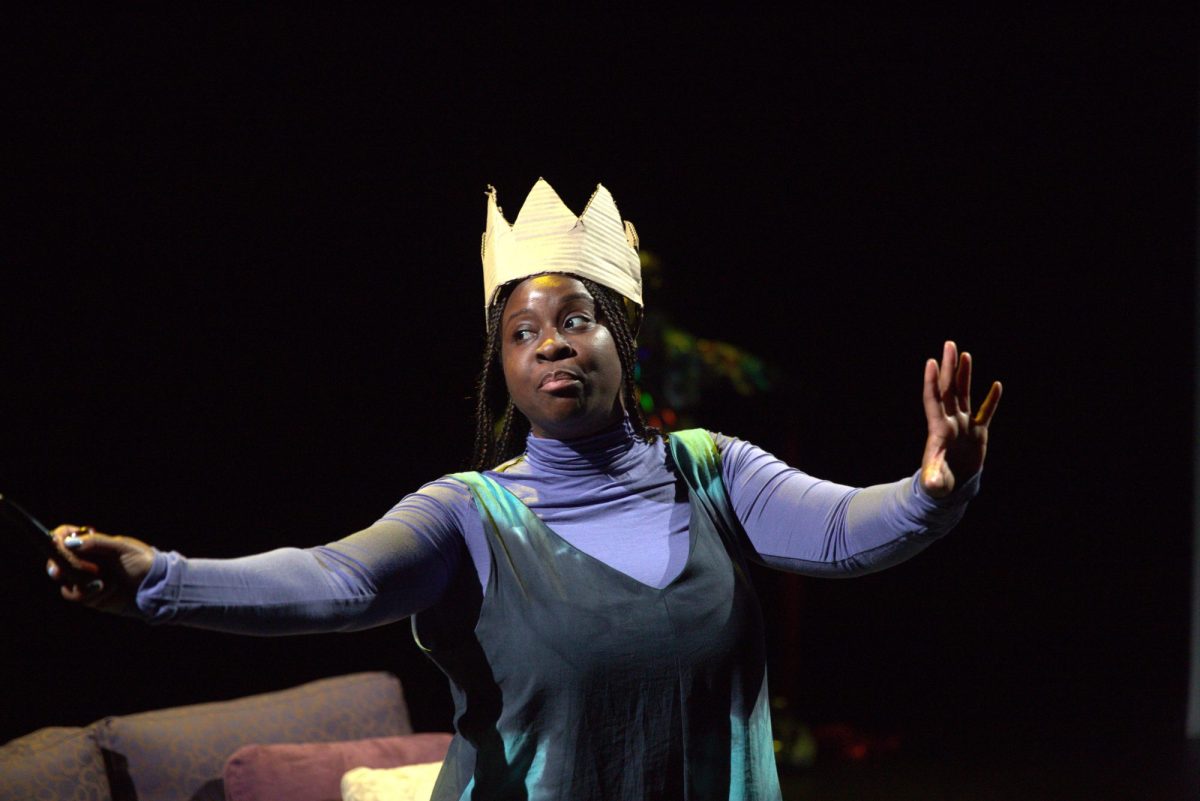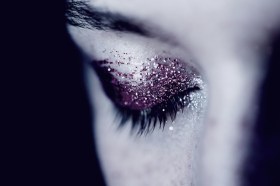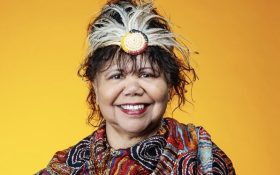La Belle Epoque is an invitation to a theatrical journey intertwining heartwarming moments of love with poignant historical truths. It’s an autoethnographic tale that was first worked on in 2016 by producer and writer of The Prize Fighter, Future D Fidel, alongside the director, Budi Miller, who joined him in 2018. It is now making its debut at Theatre Works.
When the master of ceremonies encourages the audience to keep their mobile devices active and exit the room as needed, a promise of a nonconformist journey emerges. This directive heralds a reimagining of the traditional theatrical landscape. As an independent production, the tone underpins what lies ahead.
The story unfolds in a modest Melbourne studio apartment where a circle of friends collaborate on a documentary project centred on the Democratic Republic of Congo (DRC). The 10-minute documentary delves into the harrowing history of the country’s exploitation and its enduring impact in the present day.
The play unconventionally opens by introducing each member of the ensemble, establishing a sense of intimacy and connection with the audience. Through this approach, the production artfully blurs the boundaries between fiction and reality, compelling viewers to ponder the interplay between truth and imagination within the unfolding tale.
By intertwining multiple storylines that take place within the mythical realm, the past and the present day, the production paints a vivid portrait of the lived experiences in a diaspora, particularly in Australia and the DRC. It traces the historical trajectory of resource discovery and manipulation in the DRC, spanning the era of slavery, the rubber trade, diamond mining and the extraction of rare earth minerals up to present times.
Through this narrative, the play ultimately sheds light on the intricate supply chain dynamics, and highlights the affluent nations of the Western world as the key players who reap the benefits of these resources.
At the centre of the story is Chris, played by skilled actor Mike Ugo. Opposite Chris is the driven Isioma portrayed by the multifaceted and phenomenal actor Effie Nkrumah. Together Chris and Isioma radiate sweet chemistry as a young migrant couple navigating life’s complexities while being entangled in the impacts of the documentary series.
Sharing the spotlight is Tarisai, a feisty and no-nonsense character brought to life by the powerhouse performer and wordsmith Tariro Mavondo, whose mission is to complete a comprehensive documentary at all cost. Rounding out the ensemble is Bob, the comic relief master performed by the talented actor and model Nelly Kouakou.
Each cast member, whether portraying King Shamu, Nigerian parent, King Leopold II, documentary sound recordist or other characters, embodies their roles with depth and understanding, offering the audience a glimpse into the layers of the developing narrative. The seamless transformation across different story worlds is impeccable.
These transitions are enhanced by the harmonious connections between the backdrop of carefully curated moving and still images, words detailing historical facts, powerful sound and lighting designs, functional costumes and flawlessly evolving set.
With the production promising a range of varied elements that traverse time and space, director Miller delivers a narrative that effortlessly moves the play forward without leaving the audience feeling overwhelmed.
Jack Burmeister’s sound alongside Tim Bonser’s lighting designs effectively transport the audience across different timelines, including from a calm and ordinary Melbourne day into a tumultuous night of the 1896 Congo. The audience is made to shift and settle within the discomfort of the tale.
Shana Mackay Burns’ minimal set comprises a muted patterned couch with two cushions, a desk with two office chairs surrounded by assorted props and a sculpture at the centre background of the stage constructed with CDs and other materials. This sculpture represents Fidel’s fictional King Shamu from the mythological Kingdom of Congo, symbolising the spirits of the past. As the play progresses, the sculpture evolves, incorporating an African mask and a flowing red ribbon to symbolise the theme of bloodshed.
Considering the diverse story worlds presented, Burns’ effective costumes, with Effie Nkrumah’s assistance, featuring REMUSE Designs fabrics allow for smooth and subtle but powerful shifts.
Read: Theatre review: Elegies: A Song Cycle, fortyfivedownstairs
Fidel’s La Belle Epoque is an important heart-wrenching masterpiece that succeeds in gently enveloping the audience in a whirlwind of emotions that will leave a lasting impression.
La Belle Epoque
Producer and Writer: Future D Fidel
Theatre Works
Director: Budi Miller
Dramaturg: Todd MacDonald
Lighting Designer: Tim Bonser
Sound Designer: Jack Burmeister
Set and Costume Designer: Shana Mackay Burns
Costume Assistant: Effie Nkrumah
Sound Designer Associate: Peter Liptai
Stage manager: Jade Hibbert
Fabric: Remuse Designs
Rehearsal Video: Papi Mukasa, Adrien Eppel, Austin Paley
Cast: Mike Ugo, Effie Nkrumah, Tariro Mavondo, Nelly Kouakou
Tickets: $20-$45
La Belle Epoque will be performed until 20 July 2024.





